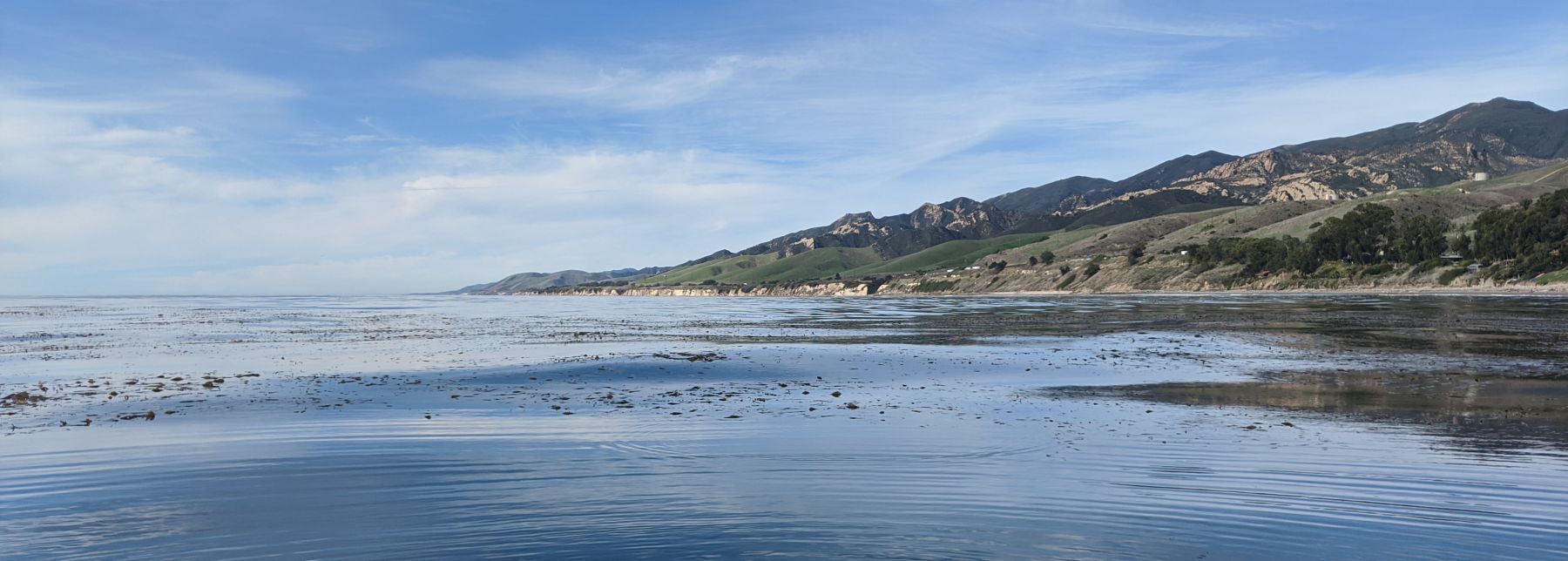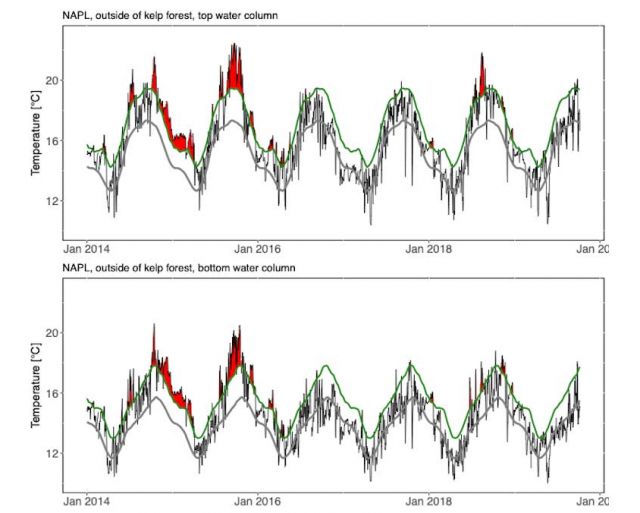Overview
Marine heatwaves (MHWs) – defined as prolonged periods of anomalously high seawater temperatures (Hobday et al., 2016) – have emerged as influential, and disruptive, climate-change driven disturbances in coastal oceans, threatening marine biodiversity. Recent modeling efforts by scientists, and those reported in recent IPCC documents suggest MHWs will become more frequent and intense in the coming years. Our research group is studying MHWs on our local California coast - here, using local temperature data to monitor heatwaves, and in experiments to assess the response and resilience of ecologically and economically important marine invertebrate species. Check out the exciting work being done by graduate students in the lab!
Research Highlight
Doctoral Candidate Jannine Chamorro, whose PhD thesis is addressing the impacts of marine heatwaves on marine invertebrates, has been working at her west coast field sites this summer, deploying Robomussels and analyzing temperature patterns at her study sites that range from southern California to the central Oregon coast. This summer Jannine conducted larval culturing experiments to test the thermal tolerance of early stage Mytilus californianus when they develop at MHW vs. non-MHW temperatures.
Affiliated Researchers
Selected Publications
TS Leach, B Buyan Urt, GE Hofmann. Exploring impacts of marine heatwaves: paternal heat exposure diminishes fertilization success in the purple sea urchin (Strongylocentrotus purpuratus). Marine Biology 168 (7), 1-15

